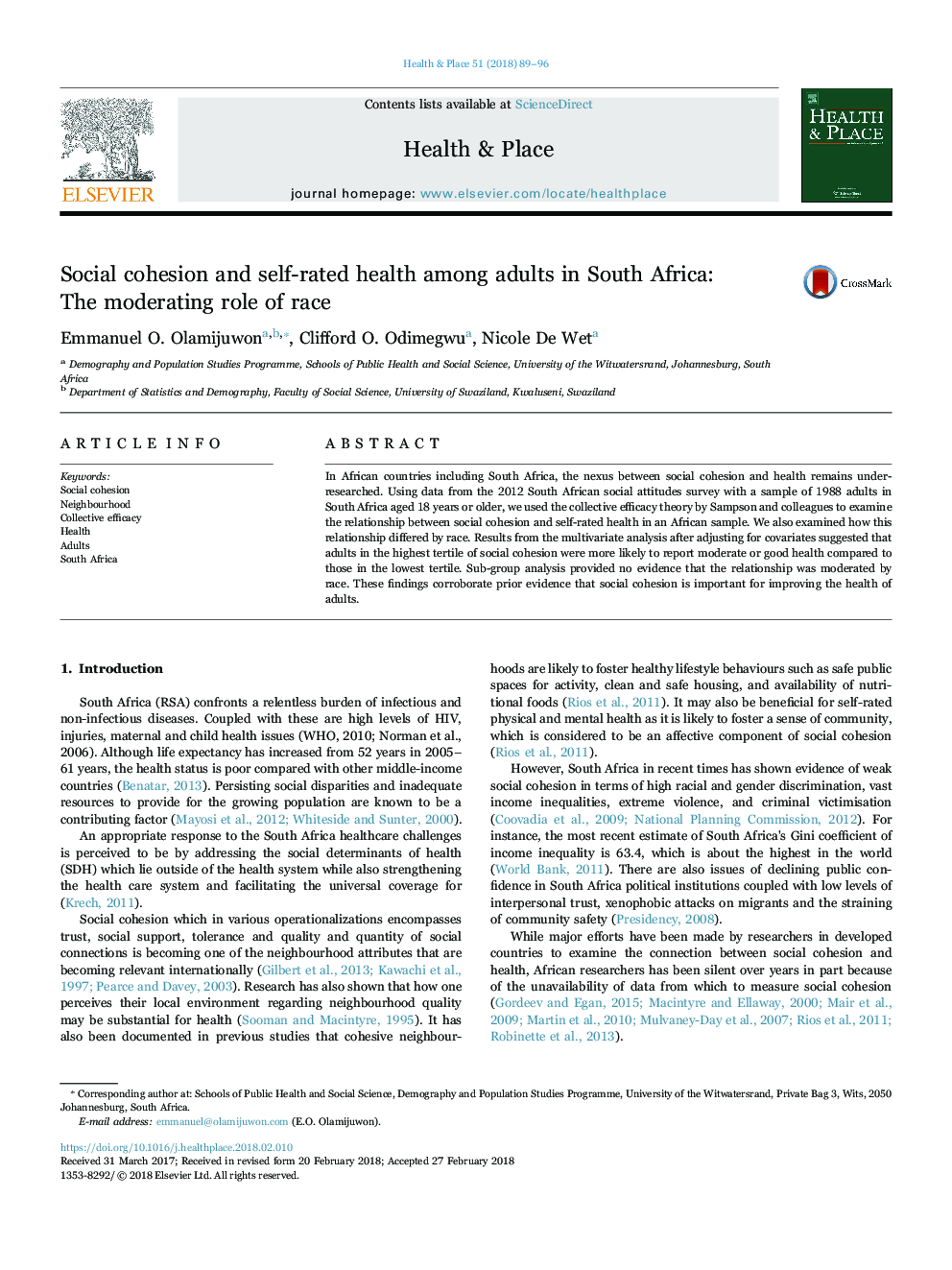| Article ID | Journal | Published Year | Pages | File Type |
|---|---|---|---|---|
| 7456839 | Health & Place | 2018 | 8 Pages |
Abstract
In African countries including South Africa, the nexus between social cohesion and health remains under-researched. Using data from the 2012 South African social attitudes survey with a sample of 1988 adults in South Africa aged 18 years or older, we used the collective efficacy theory by Sampson and colleagues to examine the relationship between social cohesion and self-rated health in an African sample. We also examined how this relationship differed by race. Results from the multivariate analysis after adjusting for covariates suggested that adults in the highest tertile of social cohesion were more likely to report moderate or good health compared to those in the lowest tertile. Sub-group analysis provided no evidence that the relationship was moderated by race. These findings corroborate prior evidence that social cohesion is important for improving the health of adults.
Related Topics
Health Sciences
Medicine and Dentistry
Public Health and Health Policy
Authors
Emmanuel O. Olamijuwon, Clifford O. Odimegwu, Nicole De Wet,
